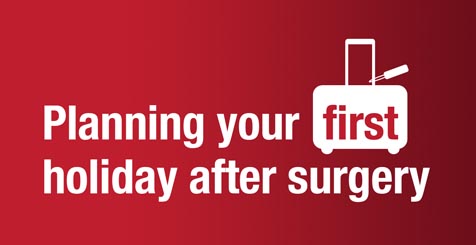As you prepare for heart valve replacement surgery, your closest family and friends will want to support you, and this will be a key part of your recovery – but this is a challenging time for them too, so what about the times when they need some help? While you should feel much better two to three months on from your operation, in the short term you’ll need everyone to rally around. These are the things to bear in mind when seeking or offering emotional and practical support and advice for heart valve replacement carers and family…
What affects you, affects them
Talking openly about how you’re feeling will enable others to respond in the right way, whether with emotional or practical help. It can be difficult to support someone when their mood is low, which may be the case after surgery. Being honest about the times when you’re struggling will give others the chance to pick you up or give you space when you want it. Most importantly, don’t expect the people around you to be mind readers and be accepting of the fact that they may need to talk, too.
Everyone needs to understand the process
Watching a loved one going through a major life event like heart surgery can be an anxious time, leaving friends and family feeling worried for the future. As the patient, the more information you can share with them, the better, from what the operation involves, to what to expect during the recovery period. Ideally, the person who will be giving you the most support will be able to attend pre-op hospital appointments with you. This should help to reassure them, and it will also give them the chance to ask any questions they may have about caring for you during the early stages of recovery.

Being apart can be hard
If you have a spouse or partner, you may not be used to spending time apart. You’ll be in hospital for about a week when you have your operation, and they’ll probably want to visit you as much as they can. Make sure that they, and any other visitors, know in advance that you may have a breathing tube and a catheter when you come out of surgery, as well as beeping monitors to track your progress – that way they won’t get too much of a shock when they first see you looking somewhat different to normal.
Do encourage family to take some time for themselves while you’re in hospital, too, as they’ll need to pick up the day-to-day jobs around the house in the early days when you come home. Racing to and from the hospital can take its toll, so be understanding if your visitors arrive looking slightly stressed after negotiating public transport or struggling to find a parking space.
Regaining your independence
As you recover, it’s important for you to get back to feeling independent, although family members may well be overprotective. Reassure carers that you’re the best judge of how much you’re able to do, while being prepared to listen when they remind you of medical advice.
Expect some resentment
When someone becomes a carer, it’s natural that they may feel some resentment at having to change their routine. You’ll probably be feeling the same way, after all. It’s possible that they’ll feel unappreciated or perhaps even ‘put upon’ as they take on more household duties. Focus on keeping the lines of communication open so that you can both air any grievances and get to grips with each other’s point of view as you work through the first weeks of recovery.

Look out for signs of stress
Caring for someone can involve a complex range of emotions as well as being physically tiring; it also requires a change in routine that may limit opportunities for social contact outside the home. If you think your carer is showing signs of stress or exhaustion, encourage them to talk to a trusted friend or a counsellor, or see their GP. Remember that they may be entitled to external support and services from your local council to help look after you. This will involve arranging for a carer’s assessment to take place.
Where to go for support
Bear in mind that you may not always be the best person for your carer to talk to about how they’re feeling. Friends, family members or other carers, or even their GP, may be better placed to offer a sympathetic ear and unbiased advice. Carers can also contact organisations dedicated to helping people in your situation, including:
The British Heart Foundation (BHF)’s leaflet for carers offers lots of useful tips on caring for someone with a heart condition, from encouraging a healthy lifestyle to changing eating habits and finding financial advice. To find a local support group, you or your carer can call the BHF’s Heart Helpline on 0300 330 3311. You can read more about the benefits of support groups here.






